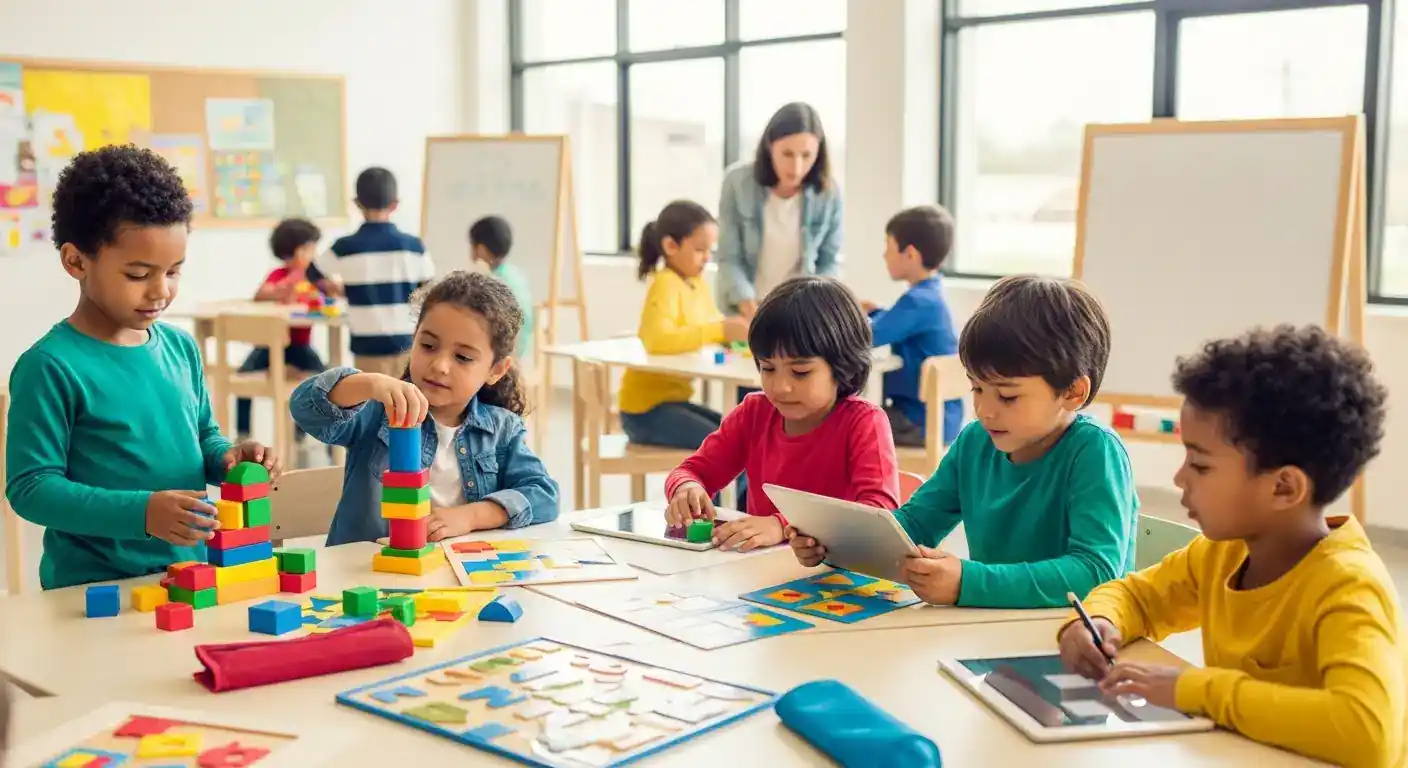IEP Development: A Comprehensive Guide for Parents and Educators

This comprehensive guide provides parents and educators with a clear understanding of the IEP development process. From initial evaluation to implementation and review, we'll cover essential steps, best practices, and key considerations for creating effective IEPs. This guide aims to empower parents and educators to collaboratively develop IEPs that best support students with disabilities.
Key Points:
- Understanding the IEP Process
- Collaboration between Parents and Educators
- Implementing and Monitoring IEP Goals
- Legal Rights and Responsibilities
- Accessing Resources and Support
Understanding the IEP Development Process
IEP development is a collaborative process involving parents, educators, and other professionals. It's crucial to understand each stage, from referral and evaluation to writing and implementing the IEP. Active participation from both parents and educators ensures the IEP accurately reflects the student's needs and learning goals. The process begins with identifying the student's specific learning challenges. This involves various assessments and observations to determine eligibility for special education services.
Collaborative IEP Development: Parents and Educators Working Together
Effective IEP development relies heavily on open communication and collaboration. Parents bring invaluable insights into their child's strengths, challenges, and learning styles. Educators contribute their expertise in curriculum, instruction, and assessment. Regular communication, including meetings and informal check-ins, fosters a strong partnership. According to a 2024 study published in the Journal of Special Education, collaborative IEP development significantly improves student outcomes.
Building a Strong IEP Team
The IEP team comprises key individuals essential to the student's success. This includes the student, parents, special education teachers, general education teachers, school psychologists, and related service providers. Each member brings unique perspectives and expertise, contributing to a well-rounded and effective IEP. A strong team dynamic is crucial for creating an IEP that addresses the individual needs of the student.
Implementing and Monitoring IEP Goals: Ensuring Student Success
Once the IEP is developed, the focus shifts to implementation and monitoring. Educators are responsible for providing instruction and support aligned with the IEP goals. Regular progress monitoring and data collection are essential to track student growth and make adjustments as needed. Consistent communication between parents and educators helps ensure the IEP remains relevant and effective. This ongoing evaluation is crucial to the success of the IEP.
Measuring Progress and Making Adjustments
Tracking progress is vital in IEP implementation. Regular assessments, both formal and informal, provide data to measure the student's progress toward their IEP goals. Review meetings allow the IEP team to discuss progress, make adjustments to goals or strategies, and ensure the IEP continues to meet the student's evolving needs. According to "Inclusive Education Practices" (Smith, 2023), data-driven decision-making is a cornerstone of effective IEP implementation.
Differentiated Insights into IEP Development
Unlike other resources, this guide emphasizes the importance of student self-advocacy within the IEP process. Empowering students to participate actively in their IEP meetings helps them develop self-determination skills and take ownership of their learning. Additionally, this guide highlights the latest trends in assistive technology and their integration into IEPs, ensuring students have access to the tools they need to succeed. These insights provide a fresh perspective on IEP development and empower students to actively participate in shaping their educational journey.
Legal Rights and Responsibilities: Navigating the IEP Process
Parents and educators should be aware of the legal framework surrounding IEPs. The Individuals with Disabilities Education Act (IDEA) guarantees free and appropriate public education (FAPE) for students with disabilities. Understanding these rights and responsibilities ensures the IEP process is conducted legally and ethically. "Special Education Law" (Jones, 2025) offers a comprehensive overview of the legal aspects of IEP development.
FAQ: Common Questions about IEP Development
Q1: What is an IEP?
A: An Individualized Education Program (IEP) is a written document that outlines the specialized instruction, supports, and services a student with a disability will receive to meet their unique learning needs.
Q2: How often is an IEP reviewed?
A: IEPs are reviewed at least annually to monitor progress, update goals, and make any necessary adjustments.
Q3: Who can request an IEP evaluation?
A: Parents, teachers, or other school personnel can request an evaluation to determine a student's eligibility for special education services.
Q4: What if I disagree with the IEP?
A: Parents have the right to disagree with the IEP and can request mediation or a due process hearing to resolve disputes.
Conclusion and Next Steps
IEP development is a dynamic and collaborative process. By understanding the key steps, legal frameworks, and best practices, parents and educators can work together to create effective IEPs that empower students with disabilities to reach their full potential. We encourage you to share this guide and leave your comments below. For further reading, explore our resources on inclusive education and assistive technology.
Internal Link Suggestions:
- Anchor Text: inclusive education; Target Page: /categories/resource-integration; Type: Category
- Anchor Text: assistive technology; Target Page: /articles/assistive-technology-in-education; Type: Related Article
- Anchor Text: individual needs; Target Page: /articles/meeting-individual-student-needs; Type: Related Article
Expandable Subtopics:
- Transition Planning in IEPs
- IEP Accommodations and Modifications
- Addressing Behavioral Challenges in IEPs
Update Frequency: This article should be reviewed and updated annually to reflect changes in legislation, best practices, and emerging trends in special education.